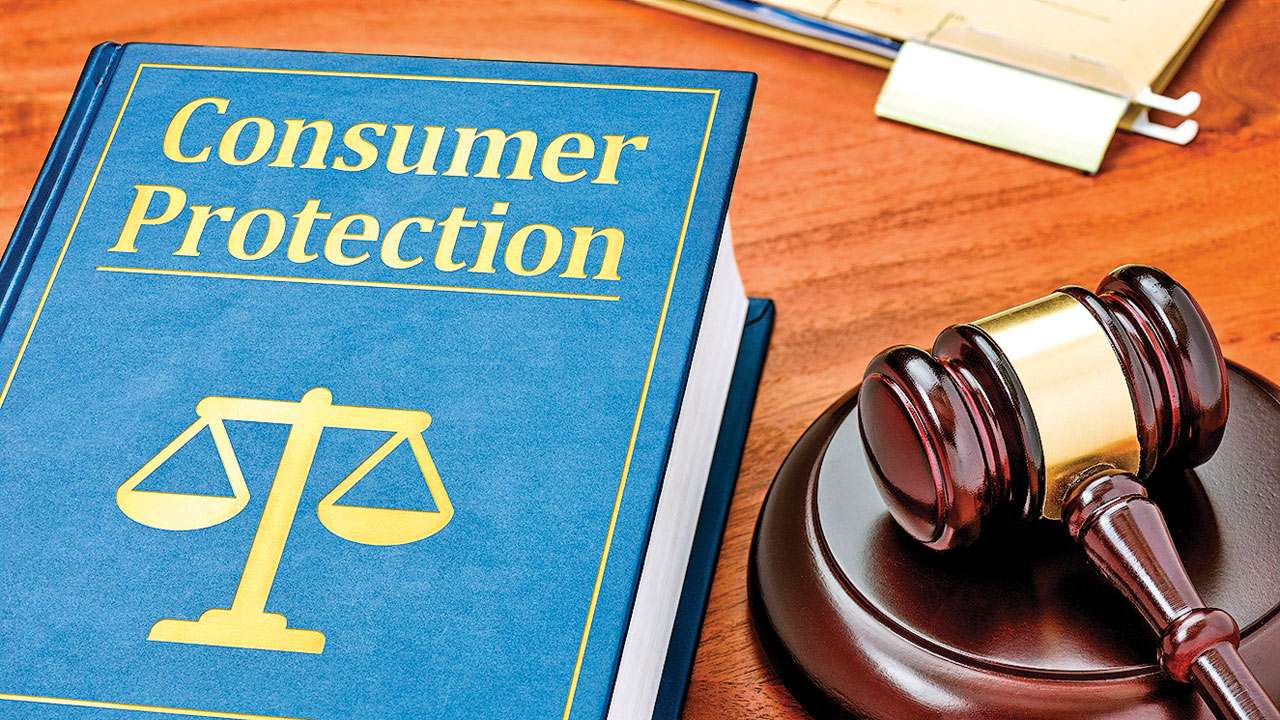View News
CONSUMER-PROTECTION-RULES-2021-STRENGTHENING-THE-LEGAL-FRAMEWORK-FOR-CONSUMER-RIGHTS

CONSUMER PROTECTION RULES, 2021: STRENGTHENING THE LEGAL FRAMEWORK FOR CONSUMER RIGHTS
INTRODUCTION:
In a significant move, the Central Government, exercising its authority under the Consumer Protection Act, 2019, has recently notified the Consumer Protection (Jurisdiction of the District Commission, the State Commission, and the National Commission) Rules, 2021. This development aims to enhance the efficacy of the consumer dispute resolution mechanism by revising the pecuniary jurisdiction across different tiers of consumer commissions.
REVISED PECUNIARY JURISDICTION:
The revised rules bring about a crucial adjustment in the pecuniary jurisdiction, ensuring that consumer complaints are entertained at the appropriate commission level. The notable changes include:
- District Commissions can entertain complaints with a value up to 50 lakh (previously less than 1 crore).
- State Commissions now have jurisdiction for complaints valued between Rs. 50 lakh and Rs. 2 Crore (earlier 1 crore to 10 crore).
- The National Commission handles complaints exceeding Rs. 2 Crore (earlier more than 10 crore).
|
Commission Level |
Revised Pecuniary Jurisdiction |
Previous Pecuniary Jurisdiction |
|
District Commissions |
Up to Rs. 50 lakh |
Less than Rs. 1 crore |
|
State Commissions |
Rs. 50 lakh to Rs. 2 Crore |
Rs. 1 crore to Rs. 10 crore |
|
National Commission |
Exceeding Rs. 2 Crore |
More than Rs. 10 crore |
EVOLVING CONSUMER PROTECTION LANDSCAPE:
These rules are a testament to the continuous evolution of the consumer protection landscape in India. By adjusting the pecuniary limits, the government aims to streamline the process, ensuring that consumer complaints are directed to the appropriate forum for resolution.
CONSUMER PROTECTION ACT, 2019: KEY FEATURES REITERATED:
These rules operate in conjunction with the Consumer Protection Act, 2019, reinforcing its key features. Some noteworthy aspects include:
1. Product Liability:
- Manufacturers, service providers, and sellers are held responsible for compensating consumers for injuries or damages resulting from defective products or deficient services.
2. Three-tier Quasi-judicial Mechanism:
- The Act establishes a three-tier quasi-judicial mechanism comprising district commissions, state commissions, and the national commission for redressing consumer disputes.
3. Time-Bound Disposal of Complaints:
- The Act mandates expeditious disposal of complaints, aiming to decide them within three months from the date of receipt, and five months if analysis or testing of commodities is required.
4. Filing Complaints Electronically:
- Recognizing the digital era, the Act provides consumers the option to file complaints electronically, facilitated by the E-Daakhil Portal.
5. Mediation Route:
- The Act encourages the resolution of consumer disputes through mediation, with the consent of both parties. This not only saves time and money but also contributes to reducing the overall pendency of cases.
EXAMPLES ILLUSTRATING IMPACT:
To better understand the implications of these rules, consider a scenario where a consumer faces a defective product causing significant harm. With the revised jurisdiction, the consumer can now approach the appropriate commission based on the value of the claim. This ensures that the dispute is addressed in a forum equipped to handle its complexities efficiently.
In the digital realm, a consumer dissatisfied with an online purchase can utilize the E-Daakhil Portal to file a complaint, emphasizing the government's commitment to embracing technology for accessible and swift dispute resolution.
CONCLUSION:
The Consumer Protection Rules, 2021, mark a progressive step in refining the legal framework for consumer rights. By aligning pecuniary jurisdiction with the Consumer Protection Act, 2019, the government aims to fortify the mechanisms available for consumers to seek redressal. These rules, coupled with the Act's provisions, create a more responsive and efficient system, ensuring that consumers are empowered and protected in the face of evolving market dynamics.
Unlock the Potential of Legal Expertise with LegallMantra.net - Your Trusted Legal Consultancy Partner”
Article Compiled by:-
Mayank Garg
(LegalMantra.net Team)
+91 9582627751
Disclaimer: Every effort has been made to avoid errors or omissions in this material in spite of this, errors may creep in. Any mistake, error or discrepancy noted may be brought to our notice which shall be taken care of in the next edition In no event the author shall be liable for any direct indirect, special or incidental damage resulting from or arising out of or in connection with the use of this information Many sources have been considered including Newspapers, Journals, Bare Acts, Case Materials , Charted Secretary, Research Papers etc

